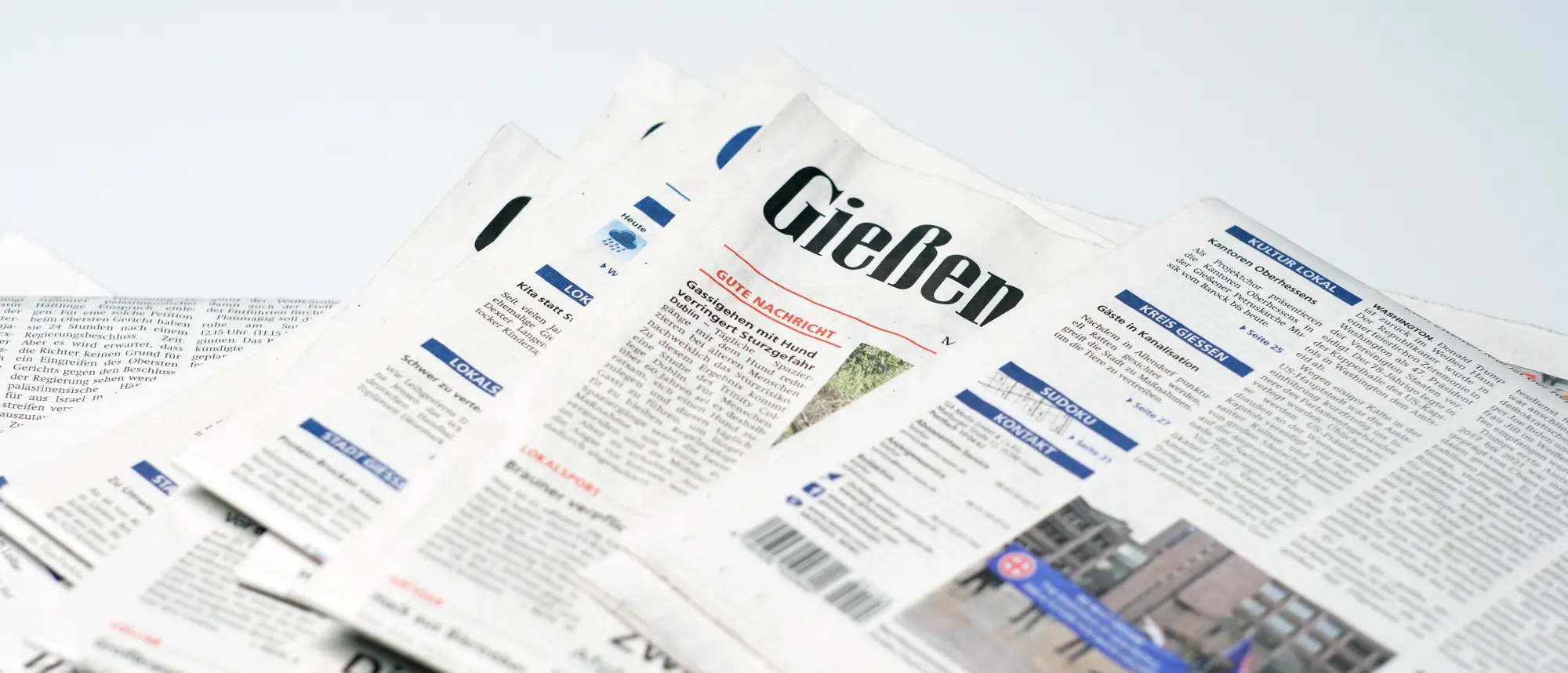Stadtwerke Gießen AG (SWG) cannot yet give the all-clear regarding drinking water contamination. The last water samples taken were still slightly contaminated with E. coli bacteria. SWG is therefore continuing to chlorinate the drinking water. "Our customers should therefore continue to boil the water before use as a precaution," says Matthias Acker, deputy company spokesperson for SWG.
Affected areas
The entire Giessen water network will be chlorinated, with the exception of the districts of Lützellinden, Allendorf and Rödgen, which are supplied with drinking water from the Mittelhessische Wasserwerke special-purpose association and not from the Queckborn waterworks. In Kleinlinden, the SWG only chlorinates the lower-lying area below Katzenbach and Bergwaldstraße. The Grünberg districts of Kernstadt, Göbelnrod, Queckborn and Harbach as well as the Fernwald district of Annerod are also affected by chlorination. In addition to chlorination, the most important countermeasure against bacterial contamination is the shutdown of the affected wells by the municipal utilities. The affected wells at the Queckborn waterworks have already been shut down by SWG.
Boil drinking water
But every customer should also do something. Matthias Acker explains: "In the affected areas, drinking water that is used for drinking, brushing teeth, preparing food or cleaning objects that are used to produce and process food should be boiled. When making coffee, the coffee machine fulfils this purpose, as commercially available appliances reach temperatures of over 80°C at which the germs cannot survive."
Duration of chlorination
Stadtwerke Gießen AG will not be able to stop chlorination until next Friday, 29 May 2009 at the earliest. This is because the water samples from two consecutive days must be bacteriologically flawless before chlorination can be stopped. Matthias Acker comments: "We took samples again today and will continue to do so in the coming days. As these have to be incubated for three days before a result is available, we won't be able to stop adding chlorine until next Friday at the earliest."

